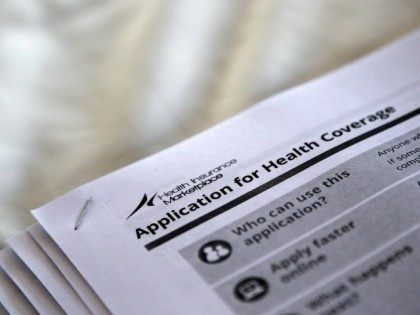Exclusive–Ortiz: Boris Johnson Election Victory Is Bad News for Democrats
Boris Johnson’s dominant election victory in the U.K. national election this week is great news for the U.S., yet terrible news for the Democratic Party.

Boris Johnson’s dominant election victory in the U.K. national election this week is great news for the U.S., yet terrible news for the Democratic Party.

Democrats’ 300-page Intelligence Committee report indicts President Trump for asking the Ukrainian president to look into potential corruption on the part of Hunter Biden.
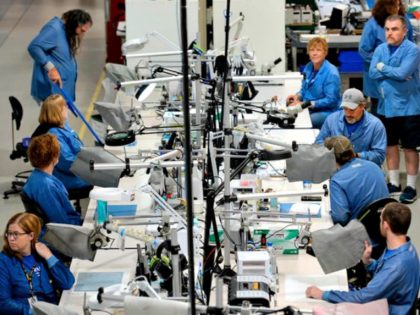
At least Democrats are on message. The party even launched a campaign this summer in seven battleground states to make the case that the Trump economy is actually bad.

A far-left, George Soros-backed outfit known as the Center for Public Integrity and the socialist British newspaper The Guardian released an 11,000-word report chronicling the passage of the Tax Cuts and Jobs Act.
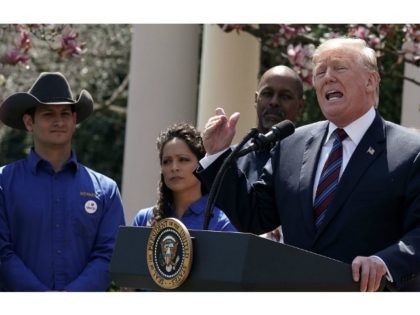
Rocky financial markets, driven largely by Federal Reserve uncertainty and President Trump’s aggressive tariff negotiation strategy, shouldn’t overshadow two trade victories at the recent G20 Summit.

Alfredo Ortiz writes in the Washington Examiner about a liberal funded organization called the Small Business Majority which is advocating against innovations such as association health plans as an alternative to high cost Obamacare.

The rate of business starts is hovering near the lowest level in recorded history on a per capita basis. More businesses closed than were opened at the beginning of this decade for the first time in a generation. Why are things so bad right now?

Ireland’s 12.5 percent corporate tax rate has encouraged several major U.S. companies like Medtronic, Pfizer, Johnson Controls, and Baxalta to move there in tax inversions in recent months, saving them billions of dollars of taxes and protecting themselves from international competition in the process.

The Bureau of Labor Statistics is out with its February jobs report, showing that the unemployment rate is 4.9 percent—a post-recession low.
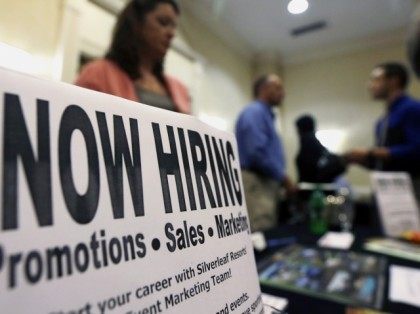
Many successful Americans from Yahoo CEO Marissa Mayer to Washington Redskins quarterback Kirk Cousins have spoken glowingly about their first job in the workforce. Mayer was a cashier at a grocery story in her home state of Wisconsin, where bagging groceries instilled a “great work ethic” and taught her the art of efficiency. Cousins picked up golf balls at a Michigan driving range, which showed him how to live on a budget and save for the future.
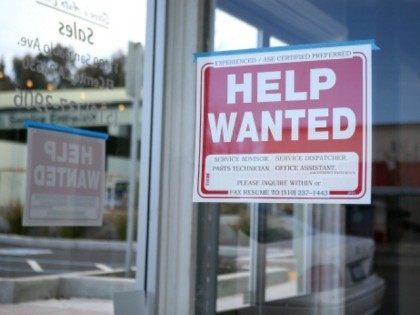
President Obama and Speaker of the House Paul Ryan disagree on a lot. But both support expanding one of the most successful government programs in history: the Earned Income Tax Credit (EITC) to help working Americans.

Companies keep leaving the United States for greener pastures. Over the past decade, more than 50 U.S. companies have participated in so-called tax inversion and moved their corporate headquarters overseas.

As we all start to get our W-2s and interest statements, we start to realize how much money the government takes directly out of our paychecks. While it is often shocking to see it added up for one year–to quote Rachel from Friends–“who’s is FICA and why is he getting all my money?”–it is important that we not forget all the hidden taxes we pay on everything from cellphone bills to alcohol.

Behind closed doors the company gave its reason: the city’s $11.50 minimum wage, which may rise to an untenable $15 this November. This decision puts the debate over the role of entry-level jobs and how they are paid back in the news. The bottom line: entry-level jobs need entry-level wages. The government can mandate wages but it can’t mandate companies to stay open.

Small businesses in America are struggling to stay afloat in the post-recession economy, but you’d have no idea after watching the State of the Union Address this week.

Should unionized employees be forced to pay dues to support their union’s political positions they oppose?

Not included in the bipartisan omnibus spending package was a proposed rider blocking the “joint employer” standard—a rule recently introduced by the unelected bureaucrats at the National Labor Relations Board (NLRB) that redefines what an employer is under labor law. This new standard would upend the wildly successful franchise system that has allowed millions of Americans—especially minorities—to pursue the American Dream.
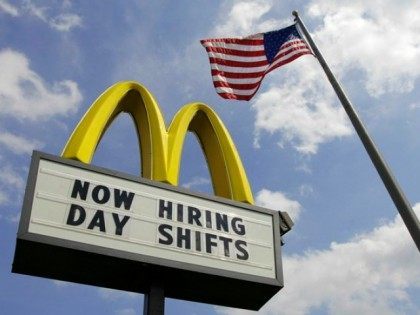
To stop tax inversions and create billions of dollars’ worth of economic opportunity in the process, policymakers must invert their thinking on this issue. Sensible tax reform, not more taxes and regulations, is the answer.

The labor market is not nearly as rosy as some would have us believe. Looking beyond the topline numbers in the government’s report shows that wage growth and hours worked are still stagnant. Average weekly earnings declined to $871.13 from $872.27 last month, partially a result of weekly hours worked declining from 34.6 to 34.5. The number of people employed part time who would like to work full time increased by a whopping 319,000, reaching 6.1 million.

Manufacturing, which comprises 12.1 percent of gross domestic product and provides millions of good jobs, appears to be in a recession. Key indicators like the Empire State manufacturing index and ISM index are at lows that collectively point to the worst manufacturing climate since March 2009. Recent job reports show monthly shedding of tens of thousands of manufacturing jobs lost and a significant decline in the average length of the workweek.
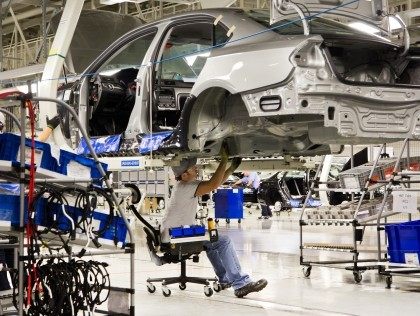
But before ACA proponents break out the champagne, they should consider another statistic: The number of Americans on Medicaid programs increased by 10.8 million between October 2013 when open enrollment under the ACA began and December 2014, according to Medicaid.gov. (Over 70 million Americans – about one in five – are now enrolled in Medicaid, double the number enrolled in 2000.)

The open enrollment period for the Affordable Care Act’s (ACA) exchanges began this week among signs of serious trouble – the biggest being price.
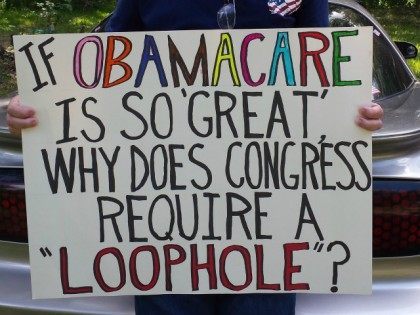
Ask most business owners and they’ll tell you: complicated, burdensome regulations are one of the biggest impediments to job growth. But instead of cutting through this job-killing red tape, employers are only getting entangled in it further.
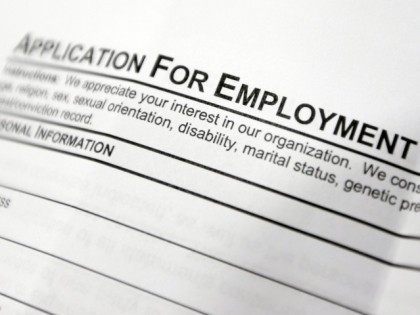
What would be the agenda of the 2016 presidential debate if America’s job creators were asking the questions?

But politicians and regulators, beholden to labor unions threatened by this new economy, are waging a full-fledged assault on job creators who don’t conform to their concept of “work.” Their latest front is the so-called “Schedules That Work Act,” recently introduced in Congress.

According to a study by Oxford Economics, the overtime rule will cost businesses about $5.2 billion to comply. In order to absorb these costs and stay in business, some employers would be forced to reduce benefits, promotions, and job opportunities. This will hurt the very people – the young and less-skilled looking for higher incomes – which the rule intends to help.

The CFPB has been given a near-blank check of power due to the extreme lack of oversight that currently exists. Unlike almost every other federal agency, the CFPB gets its funding directly from the Federal Reserve, which makes the organization less accountable to the American people.

Yesterday, the United States Supreme Court upheld the Affordable Care Act (ACA) in its King v. Burwell decision, essentially arguing the law’s language stating that exchanges must be “established by the state” (i.e. not by the federal government) is just one of many examples of “inartful drafting” in the law’s text.
